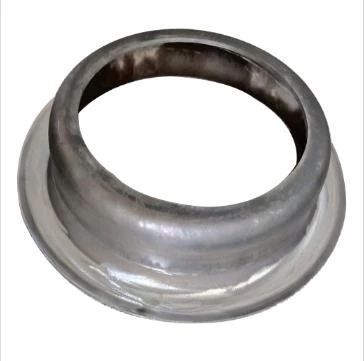Jan . 01, 2025 03:36 Back to list
Effective Cooling Solutions for Water Exchange Systems in Industrial Applications
Cooling Water Exchangers Efficiency and Importance in Industrial Applications
Cooling water exchangers, also known as cooling water heat exchangers, play a pivotal role in various industrial processes. These systems are designed to transfer heat from one medium to another, primarily from process fluids to water, thereby maintaining optimal temperature conditions necessary for efficient operation. As industries continue to evolve with increased focus on sustainability and energy efficiency, understanding the functioning and importance of cooling water exchangers is essential.
At its core, a cooling water exchanger operates on the principle of thermal transfer. In many industrial applications, processes generate significant amounts of heat. If not effectively managed, this excess heat can lead to overheating of equipment, reduced efficiency, and even catastrophic failures. Cooling water exchangers mitigate these risks by removing heat from the process fluids and transferring it to a cooling medium, typically water, which can then be circulated to an external cooling source such as cooling towers or lakes.
The types of cooling water exchangers can vary widely, with the most common being shell-and-tube, plate, and air-cooled exchangers. Shell-and-tube exchangers consist of a series of tubes, one set carrying the hot fluid and the other carrying the cooling water. This design efficiently maximizes the surface area for heat transfer while minimizing the risk of leakage between the two fluids. Plate heat exchangers utilize thin plates stacked together to create channels for the fluids, allowing for excellent heat transfer performance due to the larger surface area relative to volume. Lastly, air-cooled exchangers eliminate the need for water by using air to dissipate heat, making them ideal for areas with limited water availability.
The efficiency of a cooling water exchanger is critical for maintaining energy performance. Factors such as fouling, scaling, and temperature differences can significantly impact the heat transfer efficiency of these exchangers. Over time, particles and impurities can accumulate within the exchange surfaces, creating a thermal barrier that inhibits heat transfer. Therefore, regular maintenance, including cleaning and inspections, is vital to ensure optimal operation and extend the lifespan of these systems.
cooling water exchanger

In addition to maintenance, the design and selection of cooling water exchangers are crucial for their effectiveness. Engineers must consider various factors, including the type of process fluids, flow rates, temperature profiles, and environmental conditions. Proper sizing is particularly important, as undersized exchangers may lead to inadequate cooling and equipment failure, while oversized units can result in unnecessary capital expenditure and operational costs.
Environmental considerations also play a key role in the operation of cooling water exchangers. The increasing awareness of water scarcity and sustainability has led industries to adopt closed-loop cooling systems, which minimize water usage by recycling cooling water. Moreover, advancements in technology are leading to the development of more environmentally friendly refrigerants and heat transfer fluids, further reducing the ecological footprint of cooling systems.
The importance of cooling water exchangers in industries such as petrochemical, power generation, and food processing cannot be overstated. These systems not only help safeguard equipment from heat-related damage but also contribute to the overall efficiency and sustainability of operations. As industries strive to meet stricter environmental regulations and aim for carbon neutrality, the role of efficient cooling systems will become even more crucial.
In conclusion, cooling water exchangers are indispensable components in modern industrial settings. Their ability to transfer heat efficiently plays a vital role in maintaining operational integrity, optimizing energy use, and achieving sustainability goals. As technology continues to advance, the focus on improving the efficiency and environmental impact of these systems will be paramount, ensuring that industries can thrive in an increasingly competitive and eco-conscious world. Emphasizing the importance of proper design, regular maintenance, and innovative solutions will ultimately lead to enhanced reliability and performance in cooling water exchangers for years to come.
-
Centrifugally Cast Iron Water Main Pipe | Ductile Iron Solutions
NewsAug.24,2025
-
Durable Cast Steel Concrete Pipe Mold Bottom Rings & Base Trays
NewsAug.23,2025
-
Centrifugally Cast Iron Water Main Pipe for Reliable Mains
NewsAug.22,2025
-
Durable Centrifugally Cast Iron Water Main Pipe
NewsAug.11,2025
-
Centrifugally Cast Iron Water Main Pipes for Reliability
NewsAug.10,2025
-
High-Quality Centrifugally Cast Iron Water Main Pipes
NewsAug.09,2025


